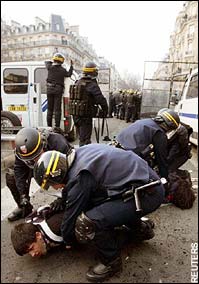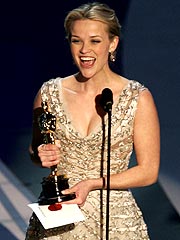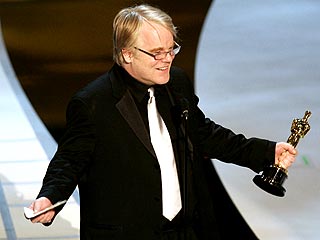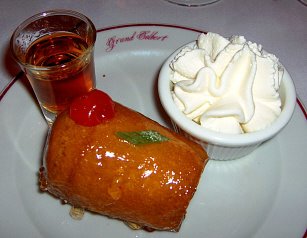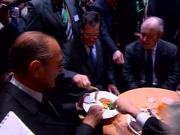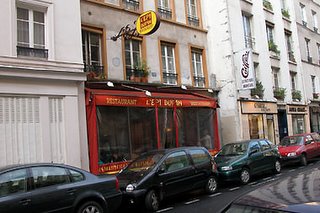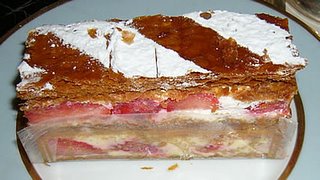
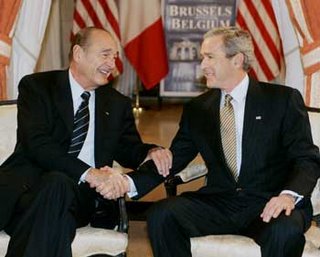

From this weekend’s International Herald Tribune (“In English? Chirac won't hear of it” by Dan Bilefsky)
“A European Union summit meeting already overshadowed by concerns over economic nationalism turned into a linguistic battlefield when President Jacques Chirac of France, "deeply shocked" by the sight of a fellow Frenchman speaking English, stormed out of the room. Chirac defiantly admitted Friday that he had bolted from the meeting the night before because Ernest-Antoine Seillière, the French head of the European business lobby Unice, was using the language of Shakespeare rather than the language of Voltaire. When Seillière began addressing the EU's 25 leaders in English, Chirac interrupted him and asked why he was not using his mother tongue. "I'm going to speak in English because that is the language of business," Seillière replied. With that, Chirac, 73, stood up and left the room, flanked by his finance minister, Thierry Breton, and foreign minister, Philippe Douste-Blazy, officials present at the meeting said. "I was deeply shocked to see a Frenchman express himself at the council table in English, that's why we left - so as not to have to listen to that," Chirac said as the meeting ended Friday. Chirac, who studied in the United States and speaks English, said France had fought long and hard to promote the French language and to ensure it was spoken from the Olympics to the United Nations and the European Union. "It is not just national interest, it is in the interest of culture and the dialogue of cultures," he said Friday. "You cannot build the world of the future on just one language and, hence, one culture."
Chirac’s temper tantrum, while ostensibly puerile, manifests the ongoing battle between Gallic pride and the globalization of business and politics. The French have a reputation for being a proud people. From the Vikings to Charles de Gaulle’s franco-centric sentiments– “France cannot be France without greatness” – the French have traditionally considered themselves to be superior to the rest of the world. And, aren’t they? Their cuisine is arguably the best in the world (I challenge you to find me a better pastry on planet earth), their women are effortlessly and breathtakingly gorgeous, their capital city is a cultural Mecca, and their mother tongue is truly “the language of love.” Yet France’s cultural offerings have been threatened in recent years by a powerful globalization – bordering on Americanization – that seeks to unify international business, politics and culture. English-language menus are becoming more and more ubiquitous in Paris restaurants, Hollywood films continue to flood French cinemas, and English is becoming an obligatory course-requirements in schools all over the country. It has become nearly impossible to succeed in business without a general mastery of the English tongue. My job requires me to interact with film companies from all over the world and our common language is always English.
So was Chirac wrong to flee the scene when Seillière began speaking English? Or was Seillière betraying his fatherland by speaking in the language of Paris Hilton instead of the language of Paris, France? Both men raise convincing arguments. “I'm going to speak in English because that is the language of business,” said Seillière. He’s right, it is. Despite efforts to create a new, universal language called ????, English has become the lingo of the world. Even if we don’t necessarily agree with the monopoly of America’s arguably hegemonic culture, it’s a fact: English is the language of business, no matter what your longitude and latitude coordinates.
Chirac also has a point: “You cannot build the world of the future on just one language and, hence, one culture.” By first starting to speak the same language, will globalization eventually destroy the uniqueness of each culture? Yet how are we supposed to communicate with one another if we don’t speak the same language?
Chirac’s recent outburst is not the first time the French president has employed linguistic protectionism. When he met with President Bush last year, Chirac insisted on speaking French the whole time, forcing an interpreter to attend the dinner. At a UN meeting where translation services were not provided, Chirac allegedly pretended not to understand questions in English and demanded that Prime Minister Tony Blair act as his interpreter. Oh, the unmitigated Gaul of him!
I’ve very torn over this issue. On the one hand, I find it much easier to conduct business when clients speak English, and travel is also facilitated. However, one of the reasons that I came to Paris is because I absolutely adore the French language and culture and I hate to see such a beautiful language be replaced by our not-so-beautiful mother tongue. In the meantime, I leave you with a quote from fellow Francophile Mark Twain: “In Paris they just simply opened their eyes and stared when we spoke to them in French! We never did succeed in making those idiots understand their own language.”
Quote of the Day:
China is a big country, inhabited by many Chinese.
–the incredibly perceptive Charles de Gaulle
French idiom of the Day:

AH, LA VACHE!
Oh, the Cow! (Good God!)
French Dessert of the Day :
Clafoutis

« Clafoutis (pronounced kla-foo-TEE) is a French country dessert hailing from the Limousin region. Clafoutis comes from the word 'clafir' which means 'to fill'. Traditionally made with the first sweet cherries of the season and are left unpitted (kernels are said to add extra flavor while baking). An earthenware dish is buttered and then covered with a layer of stemmed cherries. A batter of eggs, flour, milk, and sugar (sometimes butter, flavorings, liqueur are also added) is then poured over the cherries. The consistency of the batter can be thin (like a pancake batter) to thick (cake-like). The assembled dish is then baked in the oven until the batter is puffed, set and nicely browned. Confectioner's (powdered or icing) sugar is sprinkled over the top and it can be served with vanilla ice cream or softly whipped cream. It is best served warm. » Clafoutis are traditionally made with cherries, but many different varieties are served all over France. My personal favorites include a plum clafoutis and an apricot clafoutis.



